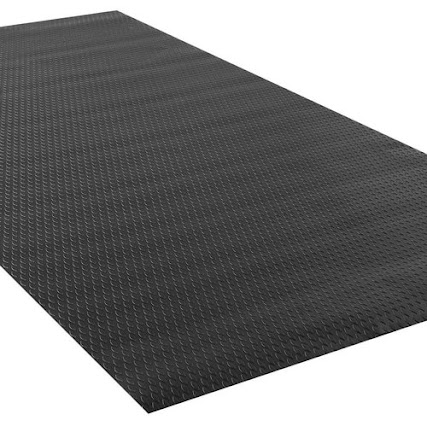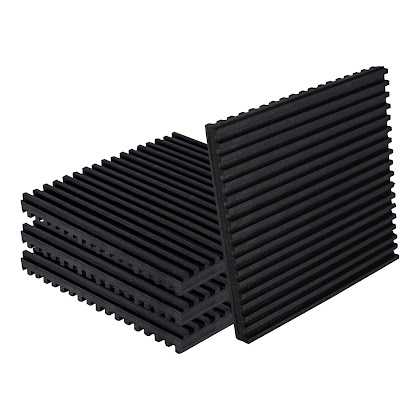What are Workshop Mats?
Workshops are spaces you should feel good about spending time in. With all the hours you spend working on a project, you deserve a place you feel productive, energized and at ease. Any great workshop starts with the floor. If you're creating a new workshop or revamping your old one, it's important to choose Workshop Flooring that supports your productivity and health as you create. With all of the workshop flooring options on the market, support and safety are just the beginning of what you can hope for from your floor. Before you buy, it's key to know exactly what to look for. Read on to take a closer look at the priority features in workshop flooring.
1. Anti-Fatigue Mat Systems
Many people don't think about the way standing on hard concrete all day makes their body feel. Naturally, standing for hours on end can cause tiredness and soreness. However, the difference between standing on hard concrete and a cushioned mat is extreme. It's possible to feel tired after just a couple hours of standing or walking on hard concrete, while the right cushioned flooring can make you feel like you can stay vertical all day long.
2. Durability
Most workshop flooring sees intense wear and tear. It's not just shoes and feet that effect the floor. Equipment, tools, furniture, materials and other heavy loads contribute to the wear down of flooring. Further, spilled materials, dropped items and chemicals can also cause flooring to degrade. It's essential to choose workshop flooring that will withstand any and all usage.
3. Ease of Cleaning
As durable as your shop floor may be, it's going to be a huge hassle without easy maintenance. Choose a floor that can be easily cleaned by sweeping or mopping with common household products. Shop flooring mats and tiles that are easily installed and uninstalled make maintenance a breeze as well. If you can easily transport your flooring, then it's no problem to take it outside to hose it off or power wash when in need of a deeper clean.
4. Safety
Safety is a clear and obvious priority, and slip-resistance is a large part of shop flooring safety. It's best to pick Workshop Mats that has some kind of traction, whether it's textured tread or the product material itself (i.e. rubber). Non-skid surfaces protect you from slipping and falling, and they protect dropped materials from going flying across the floor.
5. Cost
As nice as it would be for cost to not have to factor into making a workshop flooring decision, it can't be overlooked. Luckily, there are simple ways to cut down on costs. For example, flooring rolls tend to be more economical than their tile counterparts. Further, if you're installing for a large space or multiple rooms, you may be able to find volume discount prices. Finally, installing shop flooring yourself saves big bucks. Choose easy, do-it-yourself workshop flooring in order to save on the cost of paying someone to install for you. The thought of installing flooring yourself may seem intimidating, but there are many products that are a breeze to install. Tiles with simple connecting systems, dry lay mats, or flooring rolls are all examples of workshop flooring that are hassle-free to install.



.jpg)
Comments
Post a Comment